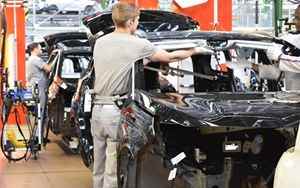(Finance) – The Ministry of Enterprise and Made in Italy has announced that since January 10th they will reopen reservations to take advantage of the eco-bonus for i non-polluting vehicles with a budget for 2023 of 630 million euros. The bonus concerns non-polluting vehicles of category M1 (motor vehicles), L1e-L7e (motorcycles and mopeds) and N1 and N2 (commercial vehicles).
Particularly, 190 million will go for motor vehicles (up to 8 people) with emissions in the range of 0-20 grams of carbon dioxide per kilometer (basically the 100% electric vehicles), 235 million for M1 category vehicles with emissions in the range of 21-60 grams of carbon dioxide per kilometer (plug-in hybrids) and 150 million for vehicles of category M1 with emissions included in range 61-135 grams of carbon dioxide per kilometre. 5% of the amounts for clean cars are reserved for purchases made by legal entities for commercial car sharing or rental activities
For what concerns motorcycles and mopeds in the category from L1e to L7e (in practice from ‘fifties’ to microcars) 5 million are expected for non-electric vehicles and 35 million for electric vehicles, while 15 million euros are vehicles commercial electric category N1 (light) and N2 (from 3.5 to 12 tons).
To the theme incentives have referred several protagonists of the sector automotive in commenting on the data of the Italian car market in December which closed with a +21% which however failed to bring the annual balance into positive territory, which loses 9.7% compared to 2021. “We ask the Government for a clear indication for the acceptance of the new technologies and, in the meantime, the maintenance and enhancement of purchase incentives for the renewal of the park circulating at least until 2026 for individuals and companies, providing for the elimination or at least the raising of the price thresholds”, declared the president of UNRAE, the association that represents foreign car manufacturers in Italy, Michele Criss. The president of ANFIA Paul Squireshe hoped that “the 250-260 million euros estimated by us as the ‘surplus’ of the 2022 incentives will be reallocated, for 2023, in favor of the 0-20 incentive brackets and 61-135 g/km of CO2”.
For Gian Primo Quaglianopresident of the Promoter Studies Centerthe incentive system must be “substantially modified to make the incentives for pure electric cars and the surrounding area economically accessible even to motorists with limited spending power and, pending the effects of the energy transition, to make an effective and significant contribution to the elimination of older and more polluting cars with a truly significant allocation for incentives for those who will scrap and buy a new car with traditional fuel supply, but with emissions not exceeding 135 grams of CO2 per kilometre”.
